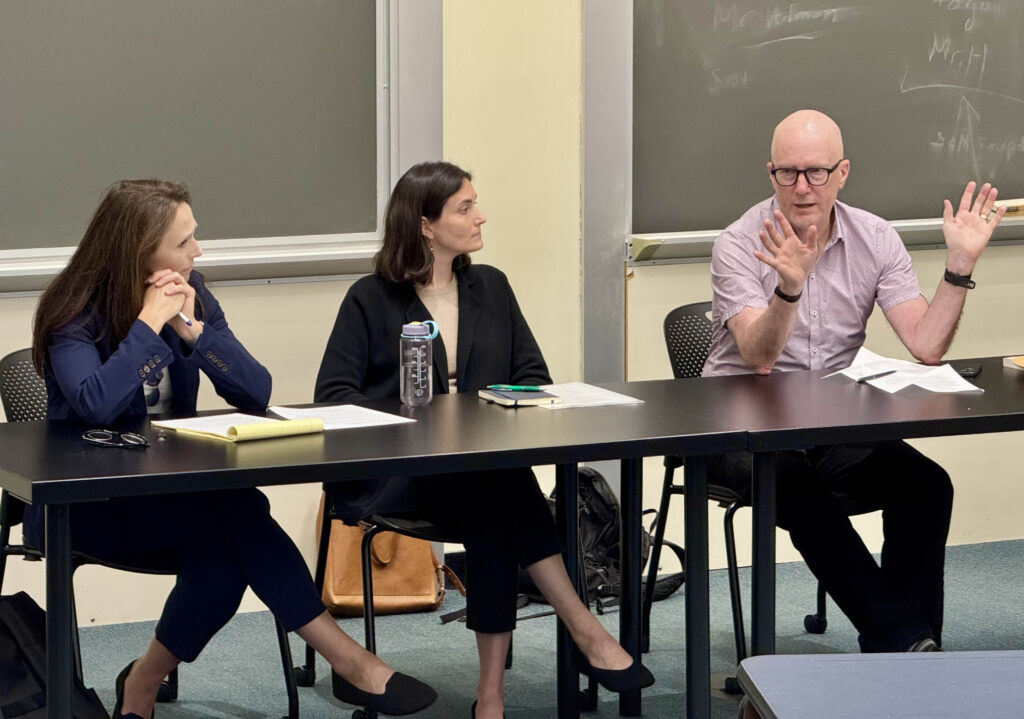The right to vote in America has never followed a straight path—and according to experts, the story is far from over.
Boston College Law School students gathered on September 29 for a panel discussion on the history and future of voting rights in the United States, hosted by the American Constitution Society and BC Law Democrats. The event featured political scientists Rachel Cobb from Suffolk University and Charles Stewart III from MIT, alongside Brooke Simone, a staff attorney at Lawyers for Civil Rights.
The panel, hosted by BC Law Democrats, opened with Cobb tracing the nation’s long history of disenfranchisement and expansion. She highlighted how political motivations—rather than steady progress—have shaped access to the ballot.
“Nothing is linear,” Cobb explained, noting that expansions in voting often coincide with wars or democratic ideals, while contractions stem from racism, class tensions, and partisan advantage.
In a similar vein, Stewart noted the complex beginnings of Senate elections before the 17th Amendment, describing a process plagued by deadlocks, partisan manipulation, and even violence in state legislatures. The chaos, he argued, helped spur the push for popular election of senators in the early 20th century.
Simone turned to the modern challenges facing civil rights laws, including voter identification laws and the 2013 Supreme Court decision in Shelby County v. Holder, which struck down the federal preclearance requirement of the Voting Rights Act. She emphasized the disproportionate burdens such laws place on communities of color, low-income voters, and the elderly who may struggle to obtain identification.
“Just one person who has a problem with voting is one too many,” Simone said.
Panelists also addressed debates over vote-by-mail, election security, and same-day registration. While they differed on the measurable impact of restrictions, all agreed that public trust in elections is critical moving forward.
“We want our elections to have integrity,” Cobb said. “People should walk away believing it was done well.”


